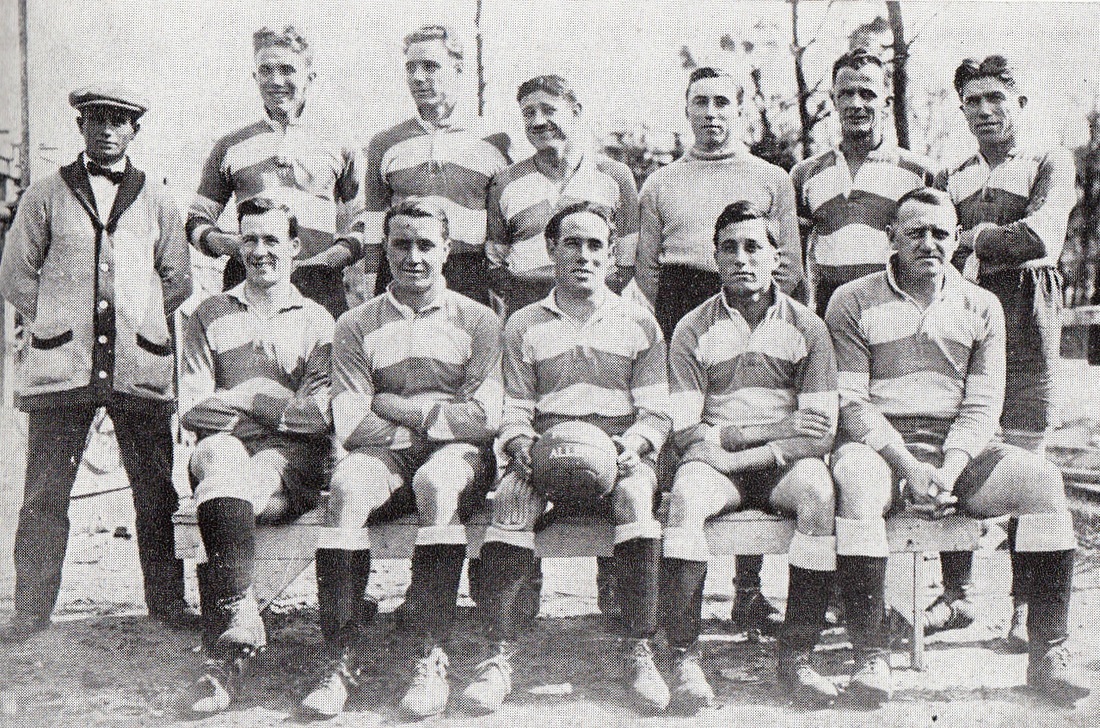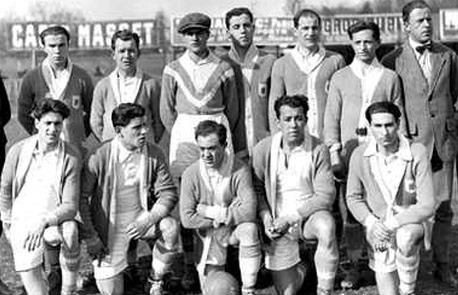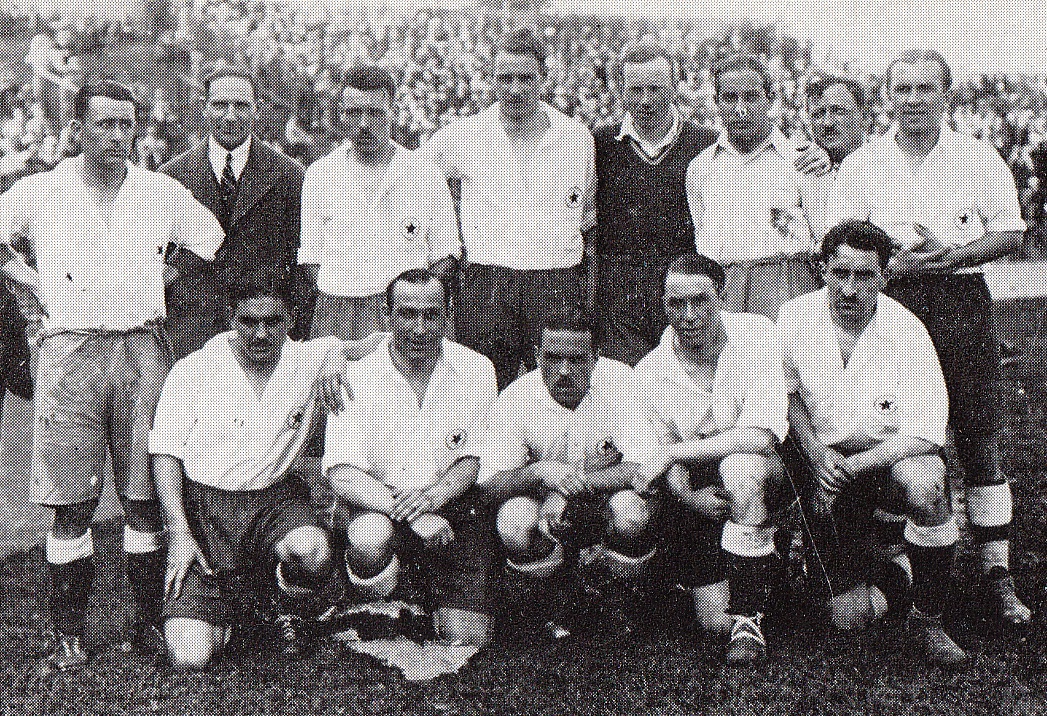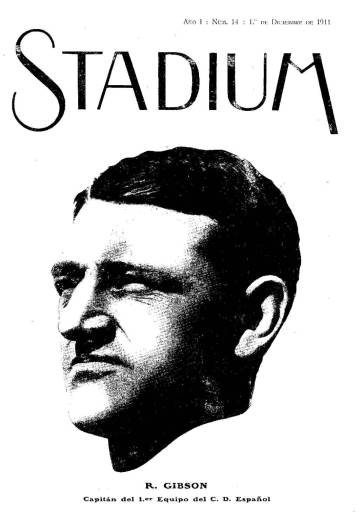And in particular the 1924 French Cup Final, when both sides may have been led by Scottish coaches. I say 'may have been' as there is an air of mystery about one of them, but what is in no doubt is that Olympique de Marseille won the cup for the first time under the charge of a Scotsman, Peter Farmer. His team won 3-2 after extra time against FC Sete, who were captained and trained by Victor Gibson.
Peter Farmer is often referred to as 'anglais' in the French reference books, but while there are some gaps to be filled in his career, he was definitely a Scot; in fact he was born in the football hotbed of Renton on 26 October 1886.
Little is known of his early life or how he embarked on a life in foreign football. I have seen references to him playing for clubs in Scotland but no facts to back that up. Similarly, there are sources that say he coached in Vienna, Switzerland, Czechoslovakia and Berlin, but there is scant contemporary evidence.
However, I did find a mention of him holding a diploma in medical massage from Glasgow's Western Infirmary, and this would have been as much an essential qualification as his coaching skills.
Peter Farmer was appointed to train Olympique de Marseille in 1923, and soon took the club to its first major triumph, the French Cup on 13 April 1924.
In the summer of 1929 Farmer returned home and spent a season as trainer of Celtic, also taking charge of the Scotland team for their game against Northern Ireland. After a year, it was back to France for a second brief spell at Marseille, then a couple of years with Racing Club de Paris and a short time with Stella Club of Cherbourg.
In 1934 he was finally appointed to manage an English club but it was the backwater of Tunbridge Wells Rangers, and a few months later he had resigned to go abroad again, this time to assist coaching development at the Romanian FA.
That seems to be the end of Farmer's football career, and he spent his remaining years in London, dying in obscurity in Hammersmith on 4 September 1964.
The earliest mentions of Gibson come in 1911 when he was with a touring team of amateurs from Plumstead, Kent, who played a couple of games in Barcelona against CD Espanyol.
Apparently then aged 22, Gibson (and a couple of his colleagues) liked it so much there that he stayed and was appointed captain of the team. He even made the front cover of the sports magazine 'Stadium'. There are potential clues to his identity as he is sometimes described as 'V. Raine Gibson' but unfortunately this has not led to any breakthroughs.
After a year in Spain, Gibson was persuaded to head for Sete (or Cette as it was then known) and he would spend the next 12 years there as captain and coach. He was already described as a veteran in the early 1920s but continued to play and score goals throughout the decade. Sete reached the French Cup finals of 1923 and 1924, losing both, with Gibson only playing in the latter match.
He then succeeded Peter Farmer as Marseille coach and in five years he led them to two more French Cup successes, in 1926 and 1927.
Regarded as one of the top coaches in the country (in fact known as 'Papey' which translates as 'Daddy') he was poached by the Peugeot family in 1929 to manage their new club in Sochaux. Their free spending led to the game in France finally turning professional, but his five years there were not a great success and he left in 1934 (they won the league the following season!). He was still playing in 1930, although not as a first team regular.
Gibson's coaching powers were probably fading and his last appointment was for the 1934/35 season at an amateur club in Bordeaux, called FC Hispanola-Bastidienne.
There is one delightful anecdote of him watching a Marseille match and each time his side scored he took a bottle out of his pocket and had a swig; his colleague asked what was in it and the answer was 'water and tea'. It was only when he stood up at the end of the game that it became apparent the (now empty) bottle had contained whisky.
Although Victor Gibson is often now described as Scottish, contemporary reports are inconclusive and he disappears from view after 1935 - there are no newspaper reports, no comments, no death notices. It seems nobody knows what happened to him.
The only potential clue is that in 1934 he was interviewed about the chances of the France team in the forthcoming World Cup, and the reporter noted that Gibson had recently become a father, with a charming young daughter. So perhaps, somewhere, there is a family who have proud memories of their football pioneer grandfather.
Update (January 2019): The true identity of Victor Gibson is discovered!
Victor Gibson and Peter Farmer belonged to a generation of British coaches who were successful in France but were virtually unknown in their own country. It would be wonderful to find out their full stories, so please get in touch if you have any additional information.




 RSS Feed
RSS Feed